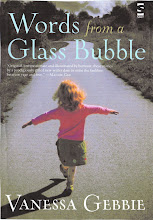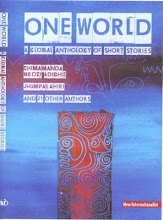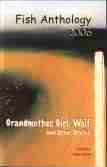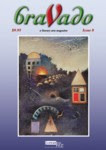It was great to see New Scientist, the publication that inspired many of the stories in Tania Hershman's collection The White Road and Other Stories, featuring the book on their website HERE.
As you can see, they were wonderfully generous, and included the whole of the title story in their feature.
It was very interesting to see the reaction of a few readers, those who, one assumes, do not have much contact with fiction. (That may be wrong, but do go and read a few comments... complaining about the lack of grammar in the story, narrated by a woman who runs a cafe in the Antarctic.)
And of course, there have been a few posts in reply gently pointing out that creative writing is creative!
I first met Tania at an event hosted by Lab Lit, an initiative that seeks to bring scientists and writers together. In an extraordinarily generous move, scientists in all disciplines have put themselves on a searchable database and are open to talking with writers who want to explore their particular field of research and use it in some way in their writing. Lab Lit website HERE, including a review of The White Road...
Lab Lit set up this initiative to encourage exploration of science in fiction. To bring together artists and scientists. I suppose it was not improbable that there would be conservative elements (forgive the pun) on both sides, perhaps, who would not see the positive outcomes in the move.
Perhaps the scientific community were expecting realist portrayals, with educated characters only? I doubt it. The scientists we met at that first event were open and interested in what the writers might do...
But it is very interesting to see the clash of art and science, albeit in a small way, acted out on the New Scientist website.
Subscribe to:
Post Comments (Atom)




.JPG)























6 comments:
And even E Chipman is having second thoughts...
Are we making inroads (white roads!) into the scientific mindset?
Interesting.
D
Hi V,
firs, thanks for your comment on the New Sci page, which, along with Douglas and Pierre, "educated" the two people who accused me of poor grammatical skills about what fiction is all about. I was a little upset at first, but then I realised that what is beautiful about this incident is that my story reached at least two people, it seems, who would never normally have read anything like this, a short story, in the first person, in the voice of the main character, whose English is "quirky", to say the least. So, as you say, it is perhaps less of a clash than a wonderful coming-together - with initial teething troubles! - of two worlds, the arts and the sciences, that we saw at that fabulous event that we met at. I wonder whether New Scientist will want to publish any more of the stories. The MP3 file of the Radio 4 broadcast has been downloaded 26 times, so that's not bad....!
Just be a little careful before you patronise the scientific community, though. Bear in mind that it was probably their scientific mindset that allowed you to convince the two sceptics by rational argument. Nice work, though. There should be more of this kind of thing.
Golly, Jonathan
I wasn't patronising anyone. Just seeking to explain how creative writing works for those who seemed, as evidenced by by their own words, not to have the slightest knowledge of it.
I thought the words 'white trash' used in the first comment were not only rude, but deliberately belittling. Those words were picked carefully. They resonate far more than if the writer had simply said 'in my opinion this story is rubbish'.
That was close to a personal remark, unwarranted and ill thought through. I was very surprised. It was followed by other personal jibes which questioned the author's educational level.
That was not funny. Not clever. Not intelligent. And a very long way from rational argument based on fact.
Sorry, Vanessa, should have been a bit clearer. The comment wasn't aimed at you - it was more aimed at Douglas' remark about making inroads into the scientific mindset. I would have thought that the fact that the two dissenters were prepared to listen to your arguments and then change their minds says a lot about the openness of that mindset.
Jonathan, I do agree with you, there shouldn't be any patronising on either "side", though by my very nature I belie the notion of art on one side and science on the other. I come from both, I understand and love the scientific mindset and the artistic one! I was upset, however, as Vanessa says, by the way the first person phrased her comment, the "white trash" remark, which has now been picked up by someone (who I don't think I know) who responded directly to her by saying, with great sarcasm: "I must agree completely! Outlaw such filth! While we're at it, let's also outlaw anyone who doesn't speak English, anyone who isn't white, and, hell, anyone who doesn't perfectly match our specific world view! Horray!"
I wrote a blog post over at my blog today about how it has actually, while initially a little troublesome, been wonderful for me to see my fiction reaching a new audience. Long may it continue. There are quite a few of us out there infusing science into fiction or being inspired by science, I am actually suprised that New Scientist has never published any before, but delighted to be the pioneer.
Post a Comment